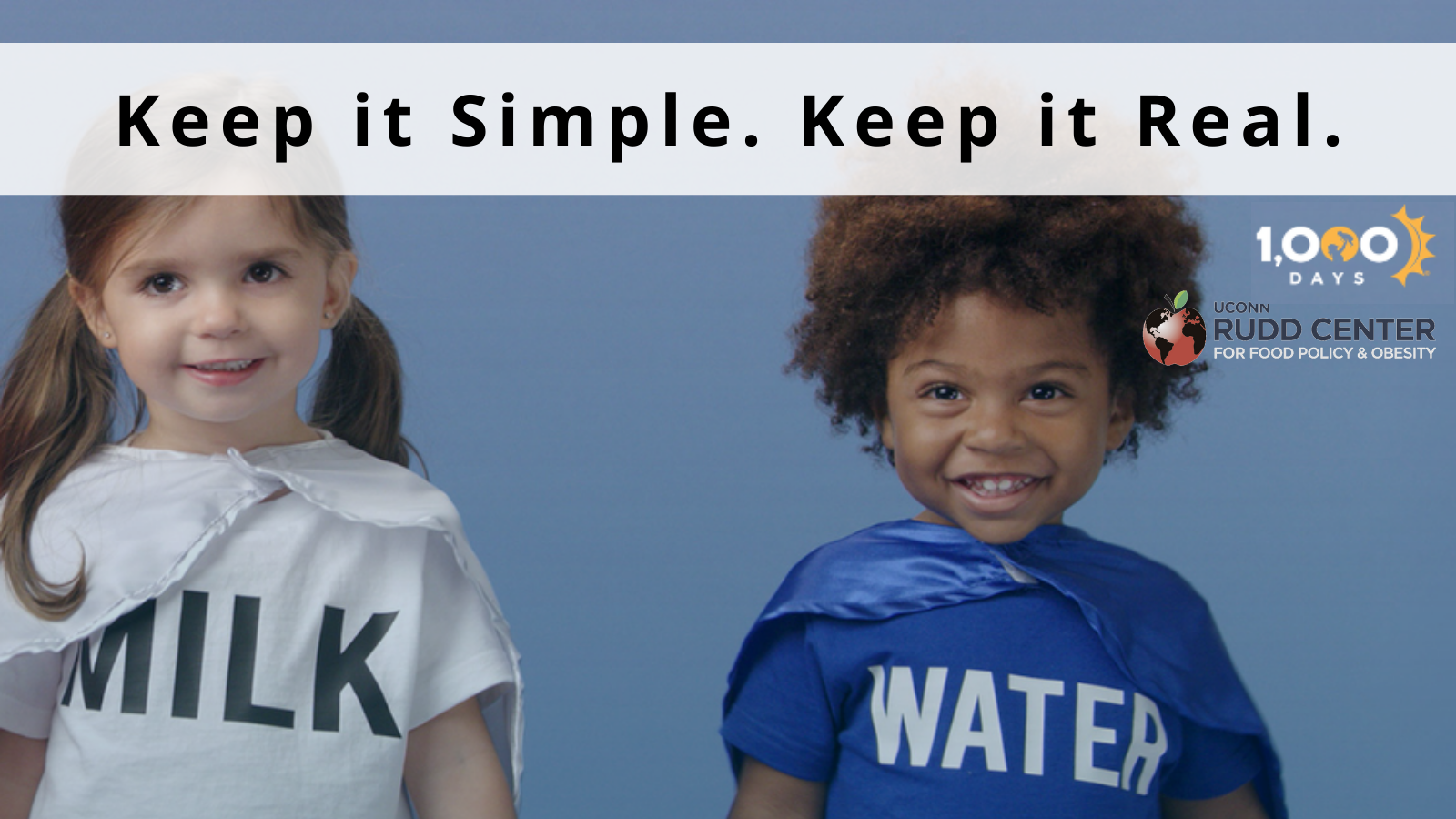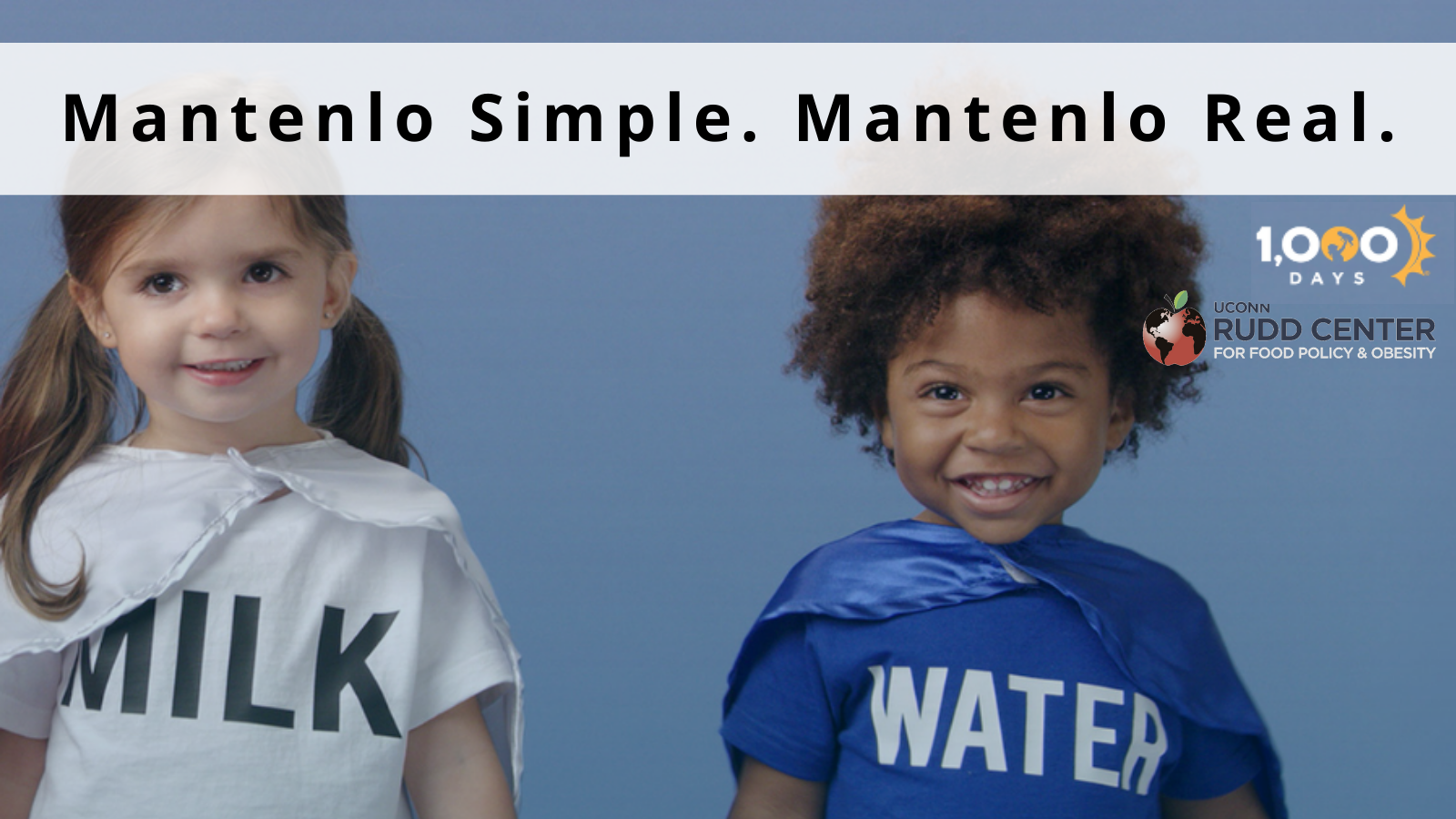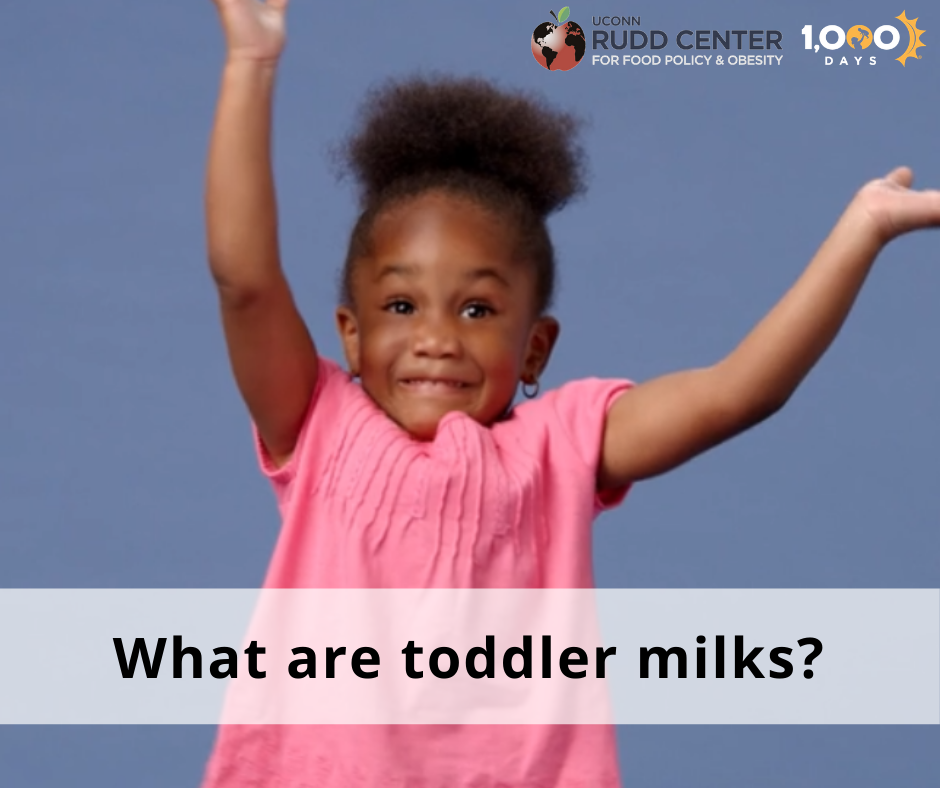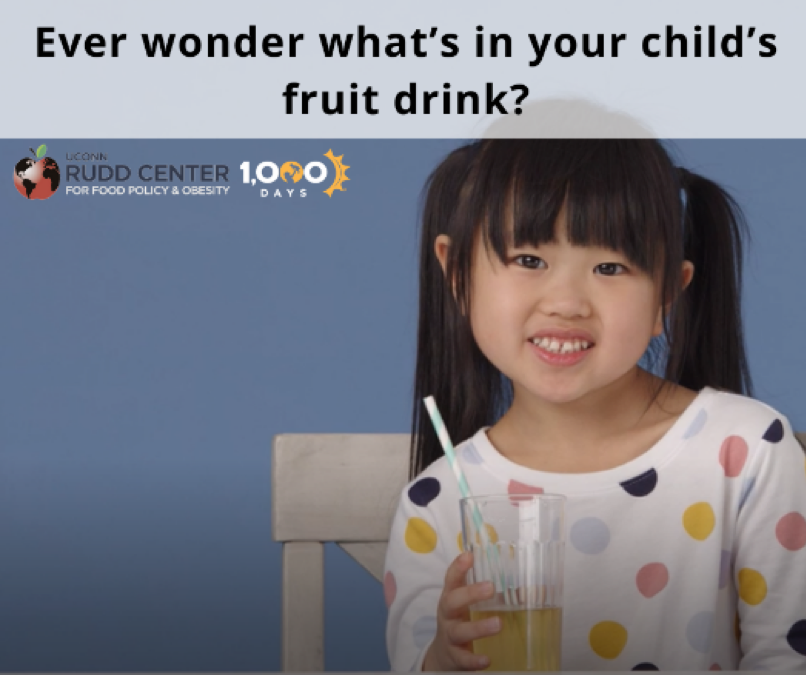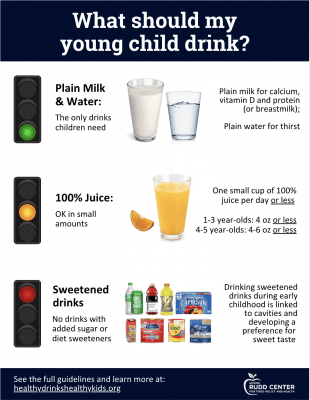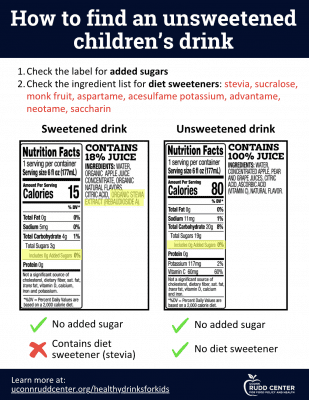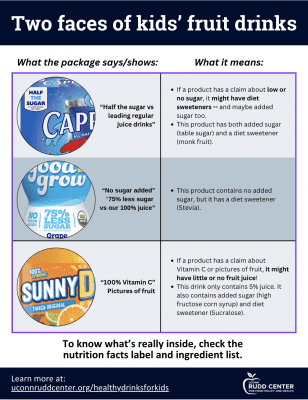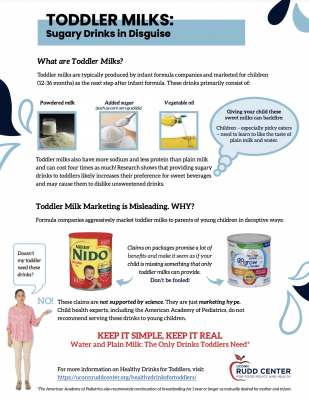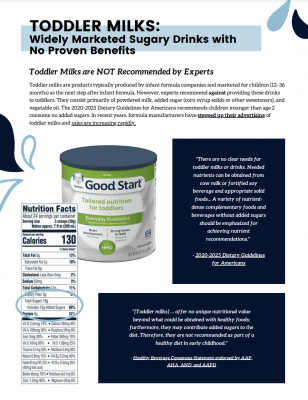Healthy Drinks for Kids
The marketing of fruit drinks and toddler milks portrays these products as healthy drinks for toddlers, but they are sugary drinks. Check out two new videos that dispel the marketing hype, inform parents about why they are not recommended for young children, and encourage caregivers to “keep it simple, keep it real” by serving water and plain milk to their toddlers.* Scroll down for Spanish versions of the videos and resources for parents/caregivers and nutrition professionals.
*For the best health outcomes, the American Academy of Pediatrics (AAP) recommends exclusive breastfeeding for approximately 6 months followed by continued breastfeeding with complementary foods for at least 2 years and beyond as mutually desired.
Resources
Toddler Milk Videos
Fruit Drink Videos
Partner Toolkit
Sample Facebook Posts:
- Fruit drinks and toddler milks: Marketed as healthy, but child health experts say otherwise. Find out why it’s best to keep it simple, keep it real in these videos created by @1000Days and @UConnRuddCenter. Check them out! https://bit.ly/2LCPukh
- Did you know that fruit drinks and toddler milks = sugary drinks? Pediatricians do not recommend serving them to toddlers. Find out why it’s best to keep it simple, keep it real in these videos from @1000Days and @UConnRuddCenter. https://bit.ly/2LCPukh
- Bebidas de frutas y leches para niños: promocionadas como saludables, pero expertos en salud infantil opinan diferente. Entérate por qué es mejor mantenerlo simple y mantenerlo real, con estos videos creados por @1000Days y @UConnRuddCenter. ¡Échales un vistazo! https://bit.ly/2LCPukh
Sample Twitter Posts:
- Fruit drinks and toddler milks: Marketed as healthy, but pediatricians say otherwise. See why it’s best to keep it simple, keep it real in these videos from @1000Days and @UConnRuddCenter https://bit.ly/2LCPukh
- Your toddlers’ drinks may not be as healthy as you think. Marketing hype hides what’s really inside. See why it’s best to keep it simple, keep it real in these videos from @1000Days and @UConnRuddCenter. https://bit.ly/2LCPukh
- Las bebidas de tus niños pequeños podrían no ser tan saludables como crees. El mercadeo esconde lo que realmente contienen. Entérate por qué es mejor mantenerlo simple y mantenerlo real, con estos videos de @1000Days y @UConnRuddCenter https://bit.ly/2LCPukh
Sample Instagram Posts:
- Ever wonder about those toddler milks you see near infant formula at the grocery store? Watch this video from @1000days and @UConnRuddCenter for what you really need to know about toddler milks: https://bit.ly/3nYNRum
- ¿Te has preguntado acerca de las leches infantiles que ves cerca de las fórmulas en el supermercado? Mira este video de @1000days y @UConnRuddCenter para lo que realmente necesitas saber sobre las leches infantiles. https://bit.ly/3nYNRum
- Kids’ fruit drinks may seem healthy from the outside, but what’s inside may surprise you. Here’s a video from @1000days @UConnRuddCenter for the scoop on what’s really inside. https://bit.ly/3qBwpOg
- Las bebidas de frutas parecen saludables por fuera, pero lo que tienen dentro podría sorprenderte. Te compartimos un video de @1000days y @UConnRuddCenter para que conozcas lo que realmente contienen. https://bit.ly/3qBwpOg
Sample Newsletter Blurb:
The UConn Rudd Center and 1,000 Days have released two new videos for parents to help correct common misperceptions about the drinks they often serve their young children. Marketing of fruit drinks and toddler milks portrays these products as healthy drinks for toddlers, but child health experts do not recommend serving these sugary drinks to young children for many reasons. In less than 60 seconds, these videos dispel the marketing hype about fruit drinks and toddler milks and inform parents about their true ingredients and why experts do not recommend them. They encourage parents to “keep it simple, keep it real” by serving water and plain milk to their young children – the only drinks experts say toddlers need for a healthy diet. To learn more and help spread the word click here (videos available in English and Spanish).
Blog Template:
We’ve all been told not to judge a book by its cover, and the same applies when it comes to selecting drinks for your kids. Product labels highlight nutrition claims and mask ingredients such as added sugars and diet sweeteners, so it’s easy to see why many parents believe that children’s fruit drinks and toddler milks are healthy. However, child health experts, including the American Academy of Pediatrics, do not recommend serving these drinks to young children for many reasons.
First, both fruit drinks and toddler milks have added sugars. Toddler milks also have more sodium and less protein than plain milk, and they can cost four times as much. Fruit drinks have almost no juice and most have diet sweeteners in addition to added sugars. What’s more, research shows that providing sugary drinks to toddlers likely increases their sweet preferences and may reduce their acceptance of unsweetened beverages such as plain milk and water. According to experts, those are the only drinks toddlers need. That’s why 1,000 Days and the UConn Rudd Center have created new videos to counter common misperceptions about children’s fruit drinks and toddler milks.
These 45-second videos dispel the marketing hype and shed light on what’s really in these drinks in an upbeat, easy-to-follow way. They encourage parents to “keep it simple, keep it real” by serving water and plain milk to their young children.
Nearly one-third of toddlers consume sugary drinks at age 1, rising to almost half of 2- to 4-year-olds (Source). Fruit drinks are the most common type of sugary drink served to young children. Toddler milks are aggressively marketed to parents of young children, and sales are growing rapidly. Reducing sugary drink consumption, especially toddler milks and fruit drinks, by young children is critical for a healthy start.


Additional option:
Partners may also want to endorse continued breastfeeding after 12 months in their communications by including this additional sentence: The American Academy of Pediatrics also recommends continuation of breastfeeding for 1 year or longer as mutually desired by mother and infant.
